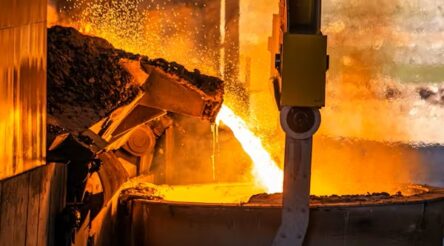JobKeeper job losses should bring focus on management skills – by Glen Casey

Glen Casey looks at the future of support for manufacturing once JobKeeper finishes at the end of March. He argues that large job losses are inevitable when JobKeeper is removed, suggesting a policy focus for SME manufacturers of job retention, and providing support to management to navigate a path in the new post COVID world.
The National Credit Insurance Feb Economic update reported 51 Manufacturing insolvencies in the Dec quarter – this is before JobKeeper finishes.
All governments are focussing their investment support on growth.
Job growth in the economy including in manufacturing is clearly the right goal, but what is the right definition of growth?
My major contention is if there is a hole in the jobs bucket, you need to plug those losses, or we just replace the ones that are lost, so there is minimal real growth.
And right now their is a hole in the jobs bucket – as JobKeeper reduces and ultimately ends, businesses will need to fund 100 per cent of wages themselves
My observations and feedback from manufacturers suggests the result come April will be significant job losses and more business closures.
Keeping existing jobs in companies that are currently operating, costs a lot less than welfare payments and incentives for new job investment.
Investment won’t happen in the current environment unless owners have the confidence of a clear business strategy that will deliver improved outcomes and a sustainable future.
Yet Australian manufacturing strategy is lagging the big changes in the manufacturing world:
- Customer needs and behaviours have changed
- Digital channels will continue to grow
- Agile has become a business necessity
- Remote working is here to stay
- On-site working requires a whole range of new operating procedures and policies
Most manufacturing businesses will require significant modification to their business model.
But in many cases management does not have the required skills or experience to deal with such dramatic change and looming cashflow issues – so we need to be not only increasing the skills of the employees, but also the management who are charged with navigating the new world.
Providing new skills for the sector remains a key requirement.
An unprecedented decimation of demand, and complexity of issues to deal with requires companies to be guided through to the “other side”.
It will require a speed of action that businesses are unaccustomed to and may lack the resources and capabilities to achieve.
And will require bold decisions that managers may not have not considered previously.
So far in the Covid recovery there has been virtually no focus on business recovery programs for manufacturing, other than examples such as a basic mentoring program run by the Victorian Chamber of Commerce and Industry.
This does not consist of any diagnostic review and has predominantly being sought by small businesses of less than 10 employees.
VCCI CEO Paul Guerra said the evolution of global manufacturing, coupled with the Covid-19 pandemic, had given rise to new opportunities for businesses.
There were opportunities to think innovatively, use advanced technologies, expand research and development and create new partnerships.
Guerra said: “The Victorian Chamber encourages all manufacturing business owners to take a deep dive into their business plans to ensure they are harnessing every unrealised opportunity to take their operations to a higher level of prosperity in 2021 and beyond.”
The target of support needs to be manufacturing businesses of more than 10 employees where over 800,000 Australians are employed and the need for reinvention and structured planning is greatest.
To save these businesses (and jobs), what companies need to do is review their business position, reset to survive in the near term, and then concurrently reinvent their business model for the new world.
Fundamentally that does not need to be in the form of subsidising wages but should be in the form of increasing management capabilities and employee skills.
Glen Casey is an manufacturing executive and principal adviser at consultants Transition Group. He is a founding member of the Australian Transformation and Turnaround Association, the premier group of Australia's business transformation leaders, and is former CEO of Nylex Ltd.
Picture: Glen Casey
Subscribe to our free @AuManufacturing newsletter here.
@aumanufacturing Sections
Analysis and Commentary Awards casino reviews Defence Gambling Manufacturing News Online Casino Podcast Technology Videos





